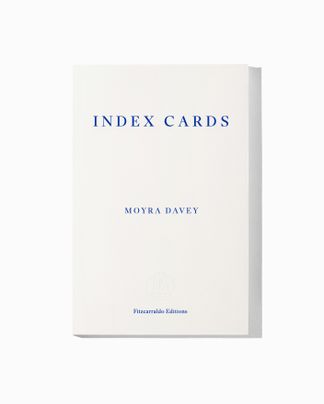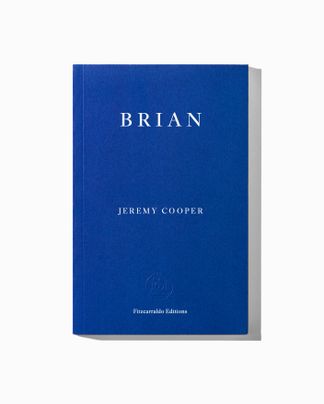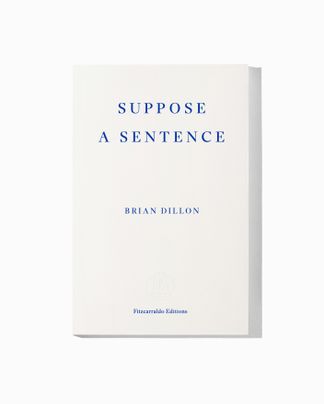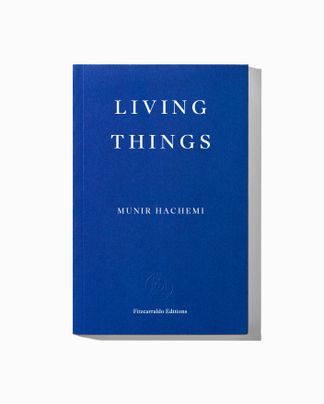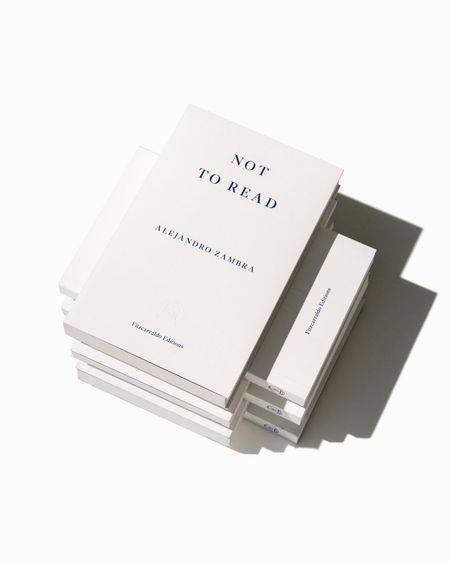In Not to Read, Alejandro Zambra outlines his own particular theory of reading that also offers a kind of blurry self-portrait, or literary autobiography. Whether writing about Natalia Ginzburg, typewriters and computers, Paul Léautaud, or how to be silent in German, his essays function as a laboratory for his novels, a testing ground for ideas, readings and style. Not to Read also presents an alternative pantheon of Latin American literature – Zambra would rather talk about Nicanor Parra than Pablo Neruda, Mario Levrero than Gabriel García Márquez. His voice is that of a trusted friend telling you about a book or an author he’s excited about, how he reads, and why he writes. A standard-bearer of his generation in Chile, with Not to Read Alejandro Zambra confirms he is one of the most engaging writers of our time.
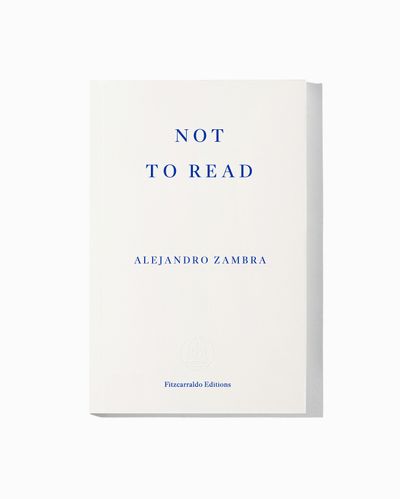
Not to Read
Translated and edited by Megan McDowell
French paperback with flaps, 288 pages
Published 18 April 2018
Not to Read
Translated and edited by Megan McDowell
OBLIGATORY READINGS
I still remember the day when the teacher turned to the chalkboard and wrote the words test, next, Friday, Madame, Bovary, Gustave, Flaubert, French. With each word the silence grew, and by the end the only sound was the sad squeaking of the chalk. By that point we had already read long novels, almost as long as Madame Bovary, but this time the deadline was impossible: barely a week to get through a four-hundred-page book. We were starting to get used to those surprises, though: we had just entered the National Institute, we were twelve or thirteen years old, and we knew that from then on, all the books would be long.
That’s how they taught us to read: by beating it into us. I feel sure that those teachers didn’t want to inspire enthusiasm for books, but rather to deter us from them, to put us off books forever. They didn’t waste their spit extolling the joys of reading, perhaps because they had lost that joy or had never really felt it. Supposedly they were good teachers, but back then being good meant little more than knowing the textbook.
As Nicanor Parra might say, ‘our teachers drove us nuts / with their pointless questions’. But we soon learned their tricks, or developed ones of our own. On all the tests, for example, there was a section of character identification, and it included nothing but secondary characters: the more secondary the charac¬ter, the more likely we would be asked about them. We resigned ourselves to memorizing the names, though with the pleasure of guaranteed points.
There was a certain beauty in the act, because back then that’s exactly what we were: secondary characters, hundreds of children who crisscrossed the city lugging denim backpacks. The neighbours would feel their weight and always make the same joke: ‘What are you carrying in there, rocks?’ Downtown Santiago received us with tear gas bombs, but we weren’t carrying rocks, we were carrying bricks by Baldor or Villee or Flaubert.
Madame Bovary was one of the few novels we had at my house, so I started reading that very same night, following the emergency method my father had taught me: read the first two pages and right away skip to the final two, and only then, once you know how the novel begins and ends, do you continue reading in order. ‘Even if you don’t finish, at least you know who the killer is,’ said my father, who apparently only ever read books about murders.
The truth is, I didn’t get much further in my reading. I liked to read, but Flaubert’s prose simply made me doze off. Luckily, the day before the test, I found a copy of the movie at a video store in Maipú. My mother tried to keep me from watching it, saying it wasn’t appropriate for a kid my age. I agreed, or rather I hoped it was true. I thought Madame Bovary sounded like porn; every-thing French sounded like porn to me. In that regard the movie was disappointing, but I watched it twice and covered sheets of legal paper with notes on both sides. I failed the test, though, and for a long time afterward I associated Madame Bovary with that red F, and with the name of the film’s director, which the teacher wrote with exclamation marks beside my bad grade: Vincente Minnelli!!
I never again trusted movie versions, and ever since then I have thought that the cinema lies and literature doesn’t (I have no way of demonstrating this, of course). I read Flaubert’s novel much later, and I tend to reread it every year, more or less when the first flu hits. There’s no mystery in changing tastes; these things happen in the life of any reader. But it’s a miracle that we survived those teachers, who did everything they could to show us that reading is the most boring thing in the world.
May 2009
‘When I read Zambra I feel like someone’s shooting fireworks inside my head. His prose is as compact as a grain of gunpowder, but its allusions and ramifications branch out and illuminate even the most remote corners of our minds.’
— Valeria Luiselli, author of The Story of My Teeth
‘There is no writer like Alejandro Zambra, no one as bold, as subtle, as funny.’
— Daniel Alarcón, author of At Night We Walk In Circles
‘Falling in love with Zambra’s literature is a fascinating road to travel. Imaginative and original, he is a master of short forms; I adore his devastating audacity.’
— Enrique Vila-Matas, author of The Illogic of Kassel
‘Lost in the pages of Not To Read, all the loneliness of the long form writer disappears. This wise, wry collection of Zambra’s musings on world literature reminds us that there is profound community in reading, writing and in being a writer beyond the machinery of publishing. In a world where the instant and new is valued and disposable, this book keeps faith through its warmth and humanity. It is a lifeline for all who love reading, and for all who write.’
— Preti Taneja, author of We That Are Young
‘Zambra has emerged as one of the most perceptive and generous writers on literature currently at work.… Most poets and fiction writers are, presumably, obsessed with books. It is rare, however, to find one who is able to articulate that obsession with as little pretense and as much élan as Zambra.’
— Andrew Martin, New York Review of Books
‘Each mini essay has a depth and purpose other writers would struggle to fit into a chapter…. The text is crystal clear and fresh, a thing of joy.’
— Manchester Review of Books
Praise for My Documents
‘This dynamite collection of stories has it all – Chile and Belgium, exile and homecomings, Pinochet and Simon and Garfunkel – but what I love most about the tales is their strangeness, their intelligence, and their splendid honesty.’
— Junot Díaz, New Yorker
‘My Documents represents a new form. When I think about Alejandro Zambra, I feel happy for the future of fiction.’
— Adam Thirlwell, author of Lurid and Cute
‘If you are going to read Alejandro Zambra, which you should, don’t just read My Documents, read everything he’s done.’
— Chris Power, Guardian
‘His books are like a phone call in the middle of the night from an old friend, and afterward, I missed the charming and funny voice on the other end, with its strange and beautiful stories.’
— Nicole Krauss, author of Forest Dark
—
The White Review interview Alejandro Zambra
—
Alejandro Zambra was born in Santiago, Chile, in 1975. He is the author of Chilean Poet, Multiple Choice, Not to Read, My Documents, Ways of Going Home, The Private Lives of Trees and Bonsai. In Chile, among other honours, he has won the National Book Council Award for best novel three times. In English, he has won the English PEN Award and the PEN/O. Henry Prize and was a finalist for the Frank O’Connor International Short Story Award. In 2023 he won the Manuel Rojas Ibero-American Prize for the totality of his oeuvre. He has also won the Prince Claus Award (Holland) and received a Cullman Centre Fellowship from the New York Public Library. His books have been translated into twenty languages and his stories have been published in the New Yorker, New York Times Magazine, Paris Review, Granta, McSweeney’s Quarterly and Harper’s, among other publications. He has taught creative writing and Hispanic literature for fifteen years and currently lives in Mexico City.
Megan McDowell has translated many contemporary authors from Latin America and Spain, including Alejandro Zambra, Samanta Schweblin, Mariana Enriquez, Lina Meruane, Diego Zúñiga, and Carlos Fonseca. Her translations have been published in the New Yorker, Tin House, Paris Review, Harper’s, McSweeney’s, Words Without Borders, and Vice, among others. Her translation of Alejandro Zambra’s Ways of Going Home won the 2013 English PEN award for writing in translation, and her translation of Samanta Schweblin’s Fever Dream was shortlisted for the Man Booker International Prize in 2017. She lives in Santiago, Chile.

